When it comes to baking soda, many people can get confused. Is it an acid? Is it a base? And if so, what kind of acid or base is it?
Baking soda is a sodium bicarbonate compound, meaning it’s a base. It’s called a base because it has a high pH that can neutralize acids. Since it has a pH of 8.0 to 9.0, adding baking soda to an acidic substance neutralizes said acid.
Read on to know the chemical composition of baking soda and how its properties make it a useful kitchen staple and ingredient for many applications.
What Is Baking Soda?
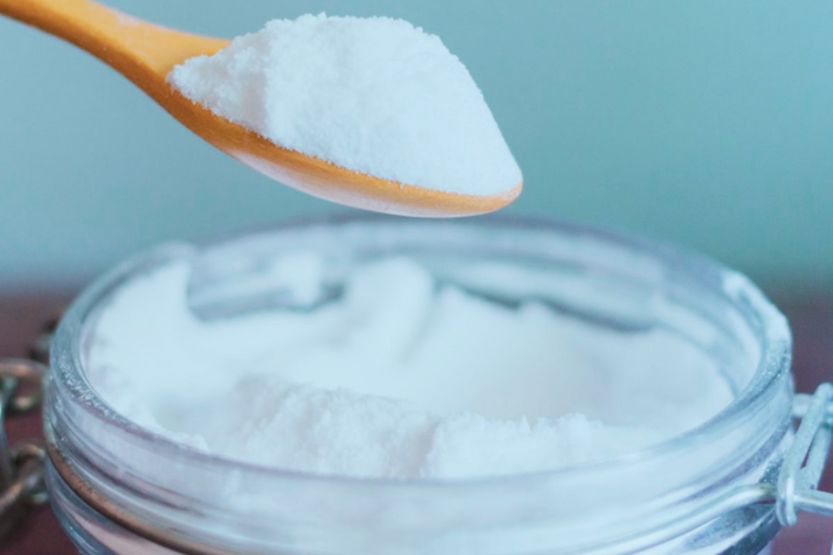
Baking soda (sodium bicarbonate) is a base. This means it dissolves in water and neutralizes acids, the opposite of bases. For example, baking soda can neutralize stomach acid and make your digestive system less acidic.
Molecular Composition
Carbon, sodium, hydrogen, and oxygen make up the chemical compound sodium bicarbonate or baking soda.
One molecule has the molecular formula NaHCO3 or CHNaO3, which consists of:
- One carbon atom
- One sodium atom
- One hydrogen atom
- Three oxygen atoms
According to molecular weights, sodium bicarbonate has:
- 57.1% sodium
- 27.4% oxygen
- 14.3 % carbon
- 1.2 % hydrogen
Physical Properties
Physical properties include odor, color, taste, and state of matter. Baking soda comes in the form of a white, crystalline powder that can occasionally form lumps. It has no smell but has a salty, bitter taste and is solid when stored at room temperature.
Weak Alkali
Maybe baking soda is the most familiar alkali you’ve ever heard used in cooking. And it is the salt of strong alkali and a weak acid, so it acts as a weak alkali.
Sodium hydroxide (lye) is the strong alkali, and carbonic acid (soda water) is the weak acid. Combining these two creates a related compound, sodium carbonate (washing soda).
Reacts to Acid
If a chemical is tested using a pH strip and the color reads between 8 and 14, it is a base. Since baking soda lands at 8 or 9, it is a base, not an acid. It also reacts to acid, another tell-tale sign that something is a base.
pH Level
The pH scale, a measurement system for describing how acidic or alkaline something is, ranges from 0 (most acidic) to 14 (most alkaline). Pure water is neutral at 7. Acids are below seven on the scale, with lower numbers being more acidic.
Baking soda doesn’t have a strong enough pH level to be considered an alkaline substance like calcium carbonate or calcium hydroxide (aka slaked lime).
However, since it can absorb odors and eliminate dirt, it’s often found in cleaning products containing other chemicals with stronger pH levels, such as ammonia or chlorine bleach.
Bases are above seven on the scale and have higher numbers being more alkaline. Baking soda has a slightly alkaline pH level of about 8.0 to 9.0, so you can use it to neutralize acids and balance out pH levels in products like shampoos that are too acidic.
Neutralizes Acid
Baking soda is alkaline. This makes baking soda an excellent way to neutralize acids when you accidentally spill some on your kitchen counter or if you’re cleaning up around the house.
Some common household chemicals that are acids include:
- Vinegar (acetic acid)
- Lemon juice (citric acid)
- Orange juice (citric acid)
However, baking soda will not neutralize all acids. It has difficulty with strong mineral acids, such as hydrochloric or sulfuric acid. Strong mineral acids are so corrosive they can dissolve glass!
Dissolves in Water
A base can be either an ionic compound or a molecular compound that dissolves in water to form hydroxide ions (the conjugate base of water).
When you make cookies, you mix some baking soda with vinegar (a weak acid) and create carbon dioxide gas bubbles. That’s what makes your cookie dough rise!
Versatile Chemical Agent
Baking soda has many uses. It’s a handy and all-purpose chemical agent. You can use it as:
- An antacid for upset stomachs;
- Cleaning agent when mixed with water (to clean pots and pans); or
- Help prevent odors from developing on clothing if added to laundry detergent before washing clothes.
Easily Dissolves into a Solution
Because baking soda is such a mild chemical, it dissolves easily into the solution — thus, making it an ideal component for many household solutions like cleaning products as it won’t harm skin or leave behind harsh residues after use.
You may have even used baking soda to treat an injury or illness at some point in time.
Baking soda is not just for household chores, though. You can also use it to help get rid of bugs on your plants or kill weeds growing in your garden.
Again, is baking soda acid or base? Baking soda or sodium bicarbonate (NaHCO3) is a base. So, it has a pH of 8 and loses the OH- ion when dissolved in water.
What Are the Uses of Baking Soda?
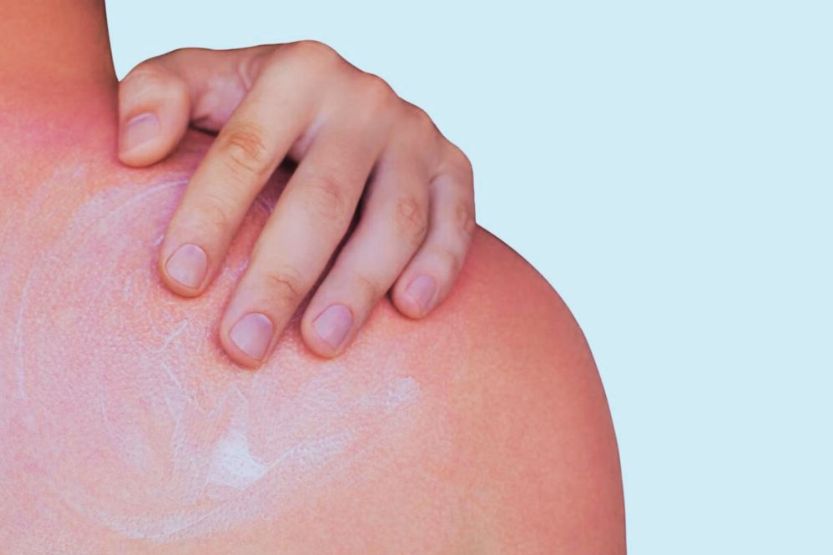
There are practical uses for some of the baking soda’s physical and chemical properties. Because this compound is alkaline, it reacts with acids, making it useful for cleaning, baking, and deodorizing.
When baking soda combines with acids with bad odors, the odors are neutralized. Baked foods rise because of the gas produced by an acid-base interaction between baking soda and an acid like:
- Cream of tartar
- Lemon juice
- The lactic acid in buttermilk
Also, baking soda crystals’ abrasive texture helps remove grime and stains from different surfaces, including teeth.
Here are some of the most common uses for baking soda:
1. Cleaner
Mix with water and vinegar to make a paste, then apply it to your sink or tub and scrub away stains. Also, you can mix baking soda with a little water and use it to clean your stovetop. It will eliminate any grease or food particles.
How Do You Get Dried Coconut Oil Stains Out of Clothes?
2. Hair Buildup Remover
Dissolve 1 tbsp of baking soda in 1 cup of water, and apply it to your hair. You can also add this mixture to your shampoo. Massage it into the scalp for about 3 minutes before rinsing out well.
This will help remove buildup from styling products or product buildup from hard water. If you have oily hair, try adding an egg yolk as well.
3. Indigestion Remedy
You can use baking soda to calm indigestion. Add 1/4 tsp baking soda to one glass of water to zap stomach acid. However, acid doesn’t cause all kinds of indigestion. Therefore, call your doctor if your symptoms don’t improve after a week or two.
Avoid using baking soda within two hours of taking another medication. Baking soda can decrease stomach acid, affecting how some medicines work and how quickly your body absorbs them. Give it to children below six years old and only if your pediatrician advises you to.
4. Coffee Neutralizer
The coffee’s acidity is what gives it that delicious, rich flavor. But if you’re looking for a way to cut down on natural acids and make your coffee less acidic, try baking soda.
Baking soda helps neutralize naturally occurring acids in the coffee, making it easier on your stomach. You can add a pinch of baking soda to a cup of coffee or 1/4 tsp for every coffee pot.
5. DIY Toothpaste and Teeth Whitener
Combine 1/4 cup baking soda with 1/4 cup hydrogen peroxide for a natural toothpaste that whitens teeth and freshens breath.
Another method is to dip your toothbrush in baking soda, then brush with it to help whiten your teeth. And if you don’t have hydrogen peroxide, you can easily make a paste by mixing baking soda with a few drops of water and using it as toothpaste.
6. Odor Control
Most unpleasant odors are caused by either strong acids (like sour milk) or bases (like spoiled fish). The smells in your refrigerator or carpet become neutral when you add baking soda, which alters the pH balance.
You can put it to the test:
- Put a box of baking soda in your refrigerator and let it stay open;
- Place it in the bottom of your dishwasher; or
- Sprinkle it over the garbage layers in your trash can.
7. Deodorant
Baking soda is a great deodorant alternative to commercial deodorants. It’s cheap, effective, and easy to make at home. Use baking soda as an all-natural deodorant that’s gentle on your skin. It won’t clog pores as store-bought products can.
8. Sunburn Remedy
Baking soda is a great weapon in your arsenal for an emergency sunburn. It’s inexpensive, easy to find at any grocery store, and has many uses around the house.
If you have sunburn, add a cup of baking soda to a bath and soak in it. This will help draw the heat out of your skin and soothe the burn.
9. Face, Hands, and Feet Exfoliator
Combine baking soda with some water until it forms a paste. Then rub it on your face, hands, or feet for a light exfoliating scrub that won’t irritate your skin the way other exfoliating scrubs can.
10. Brush & Comb Cleaner
Soak dirty brushes and combs in a cup of warm water mixed with a teaspoon of baking soda for about 15 minutes to remove product buildup and stains. This method will make them look new again.
11. Breath Freshener
Did you know that baking soda can be used as a breath freshener? Baking soda has an alkaline pH, which neutralizes the acids that cause bad breath.
If you have a problem with a dry mouth or drink plenty of water, it’s a good idea to try using baking soda as a breath freshener.
Mix 1/2 teaspoon of baking soda with 8 ounces of water and swish it in your mouth for 30 sec before spitting it out.
12. Mattress Deodorizer
Baking soda is an excellent mattress deodorizer. It works by neutralizing odor-causing agents, which are usually bacteria.
The process is simple: sprinkle baking soda on your mattress and let it sit for several hours while it absorbs the odor. Then vacuum up the baking soda, and you’re good to go!
Frequently Asked Questions – Is Baking Soda a Base?
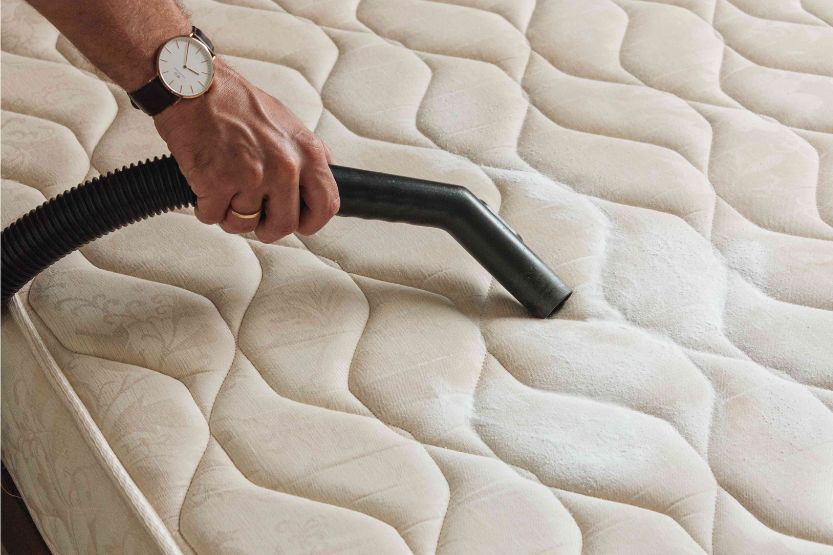
Is Baking Soda a Strong Base?
Baking soda is a weak base, not a strong base. It has a pH of 8.0, on the alkaline side of neutral (pH 7).
Is Baking Soda Neutral?
Baking soda is a neutral substance made of a positively charged ion, or cation, and a negatively charged ion, or anion. This is true for all salts. Baking soda is neutral ionically, yet its pH is higher than neutral.
What Is the pH of Baking Soda?
Also known as sodium bicarbonate, baking soda is a basic substance with a pH of 8.0 to 9.0.
What Is Baking Soda Good For?
There are many health advantages to using baking soda. For example, it may relieve heartburn, improve athletic performance, or even whiten teeth. Baking soda is very affordable and widely accessible.
Can I Drink Baking Soda?
Baking soda in tiny amounts is typically safe to consume. This may offer momentary indigestion relief in adults. But baking soda should not be used excessively and not on a long-term basis, during pregnancy, or in children.
How Does Too Much Baking Soda Affect You?
You may feel nauseous and experience vomiting and diarrhea when you consume too much baking soda. This occurs because the high salt content draws water into the digestive tract to aid absorption.
As a result, you may experience dehydration, seizures, and kidney failure after the body has absorbed sodium.
Conclusion – pH Level of Baking Soda
So, is baking soda acid or base? Baking soda is a base with a pH level of 8.0 to 9.0. It’s one of those things that will react with an acid to produce carbon dioxide gas and water. That’s why it’s so useful for cleaning.
Because it is a base, you can also use it to alkalize the body and treat indigestion, including other stomach problems. However, limited consumption of this sodium base is recommended to avoid an overdose of sodium or other health issues.

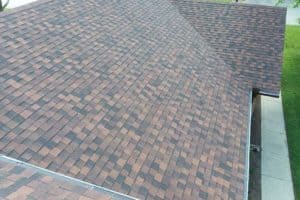
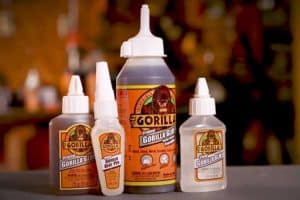
![Read more about the article How to Get Coconut Oil Out of Clothes [8 Ways]](https://howchimp.com/wp-content/uploads/2022/06/how-to-get-coconut-oil-out-of-clothes-300x200.jpg)